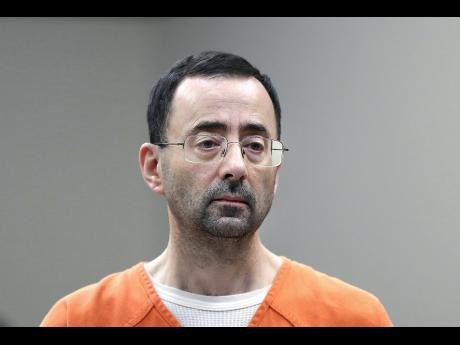Dalton Myers | We must protect our athletes against sexual abuse
The US Olympic Committee (USOC) is facing mounting criticism over its action, or lack thereof, on matters related to sexual abuse.
On January 4, 2019, an ad hoc group, The Committee to Restore Integrity to the USOC, sent a letter to the USOC calling for the almost complete resignation of the board. This follows the Ropes & Gray investigation and the US Congressional House Subcommittee report, both published in December 2018.
Ropes and Gray's 'Report of the Independent Investigation: The Constellation of Factors Underlying Larry Nassar's Abuse of Athletes' was commissioned by the USOC itself. The more damning Congressional Report 'Nassar and Beyond: A Review of the Olympic Community's Efforts to Protect Athletes from Sexual Abuse' was very critical of the USOC and member sporting associations.
The congressional report highlighted glaring weaknesses in the USOC's governance structure and its inability to protect athletes from sexual abuse. It pointed out amongst other things:
- A culture that prioritised reputation and image over athlete safety
- USOC's belief that safety of athletes was a responsibility of sport governing bodies
- Inconsistencies in application and enforcement of background check policies
- Inconsistencies in policies and procedures regarding how to report and handle reports, complaints, or allegations of sexual abuse in the Olympic community
- Evidence of varying interpretations of National Governing Bodies' bylaws to not report allegations of sexual abuse to law enforcement
- Approximately 43 organizations, including the USOC, were not in compliance with the US Athlete Safety Standards.
It all makes me reflect on our reality in Jamaica and the wider Caribbean sports community; and I hope that our sporting organisations will use this report as a means of restructuring how we govern sports, and the extent to which there are policies and procedures to deal with sexual abuse. It is evident from the report that the USOC, like most National Olympic Committees (NOCs), leaves this up to the NGBs who have overall responsibilities for their sport.
Issues surrounding abuse
There are issues surrounding sexual abuse and the reluctance or inability of victims to come forward for varying reasons. This is exacerbated if there are no formal structures in place, as evidenced in many Jamaican sporting organisations, to accommodate these victims telling their stories. In sport, it is now crucial to examine sexual abuse at all levels, at any age and/or gender.
For Jamaica, the Committee on the Elimination of Discrimination against Women (CEDAW) 52nd Session in 2012 noted that:
- Gender-based violence is widespread and cases are under-reported due to the prevalence of social and cultural norms;
- There is insufficient awareness and training among judges, prosecutors, police officers and health professionals on violence against women;
- Despite the 2008 reproductive health survey on intimate partner violence, there is limited data available on violence against women and no systematic process to collect such data;
- A number of factors continue to deter women from reporting and pursuing sexual offences cases, including victims' and witnesses' fear of reprisals or retaliation and delays in the judicial process.
Taking that into consideration, we recognise that we must put things in place as part of our governance structures and work within the established legal framework to protect our athletes.
We are faced with several challenges though, as there is little access to information locally on paedophiles or other sexual predators, who could possibly still be in the sporting industry as coaches, massage therapists, team managers, etc; while there are inconsistencies with background checks. So, there isn't much to warn parents and guardians of possible risks associated with any sporting programmes.
Additionally, not everyone is willing to come forward with information as the 'informer fi dead' culture still exists; and there are some persons, including parents, who believe that if there are financial or academic advantages to be had then they should remain silent.
The Congressional House report is a must-read for everyone involved in sport administration, primarily because it was always believed Olympic associations' autonomy protects them from this kind of scrutiny. However, the US cases should show us in Jamaica we need to strengthen our policy frameworks to protect athletes, in addition to greater education and awareness programmes. It is time for all of us to play our part in creating safe spaces for athletes.
- Dalton Myers is a sports consultant and administrator. Email feedback to daltonsmyers@gmail.com or tweet @daltonsmyers

